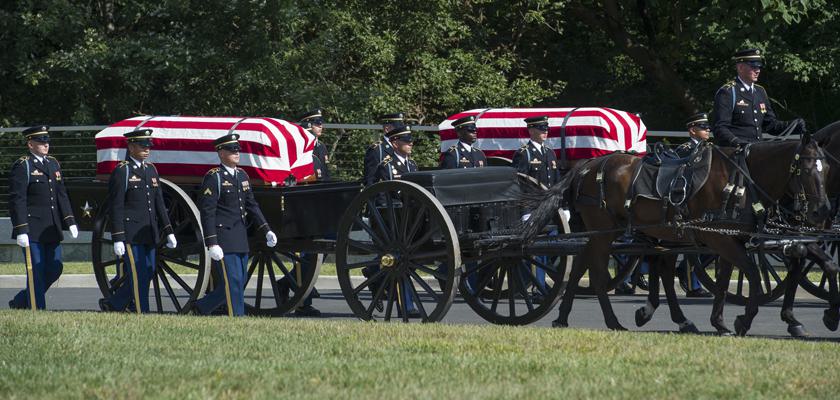The soldier is the army.
No army is better than its soldiers.
The soldier is also a citizen.
In fact, the highest obligation and privilege of citizenship is that of bearing arms for one's country.
George C. Patton
"I didn't know where we were going. Only that my commanding officer told me to get my plane ready. And stay close.”
They landed in Wiesbaden, Germany.
At a bombed-out airstrip, or airport. He wasn’t sure.
Then, they headed to a camp.
He said they didn't see anyone at first.
Then, "They came out of nowhere. Skin and bones, like ghosts. They wouldn't stop hugging us."
That man was my grandfather, Paul Wills.
He along with two other pilots were chosen to fly to Wiesbaden, Germany, the day after WWII ended to open the gates and release over 2,000 US prisoners of war.
But who was he?
And who were they? That class of people so willing to lay down their lives? People filled with humility - that glittering jewel in the crown of a person's character - and grit - unyielding courage in the face of hardship or danger.
To be sure, I don't think we have an inkling about the sacrifices they made for us.
Nor do we understand what today's military families endure, from the soldier to the spouse, to the children. We can't. Not fully.
But we can honor them.
Men like my husband Chris' grandfather.
His name was Charles Cowart, and he was a prisoner of war.
He was part of the “First Battle for Kesternich which took place from 13 to 16 December 1944. Kesternich is a small village just inside the German border from Belgium. It was the site of two major battles during World War II.”
During the first battle, his regiment was backed into a church.
The church was bombed.
And then, his commanding officer was shot in the neck beside him and died instantly.
A grenade knocked Charlie out, leading to his capture.
Afterward, he didn’t talk much about the war.
Who could after his harrowing experience?
Though we have several of his letters and a battlefield map.
Douglas A-26 Invader
Chris’ paternal grandfather was a California-based training pilot for the military.
He was an Air Force pilot, who was a trainer in California during World War II.
Though he never went to Europe, he trained pilots who did.
— Shaver family Archives, circa WW1
Perhaps you've considered your mothers and fathers on the weekend that leads to July 4, and what service means. How many families still give their lives to these United States?
My father served briefly in the Marines but broke both knees and could not complete basic training. I am certain he was, for a time, a fierce Marine.
Chris' dad was at the Air Force Academy for two years. He resigned when he discovered that at 6'5", he was too tall to become a pilot. He served as a medic in the Reserves for two more.
Still, who were these men and women in your family and mine? Are people willing to lay down their lives?
And how can we honor them?
When our kids were little, their school celebrated grandparents day and did just that.
The day culminated with a school-wide chapel service.
Most would say their favorite part happened during one portion of that annual gathering when parents or grandparents who'd served in the military stood as the war or conflicts they served in were named.
Simultaneously, school children grabbed their adult service member's hand and led them to the stage.
Then, the 5th and 6th-grade bands played each military branch's song.
That's when tears coursed down the faces of nearly every attendee. Truly, only a cold and icy soul could withstand the barrage of emotions like gratitude and respect that circulated in the sanctuary.
When the final note rang out, the audience stood to our feet, cheering so loudly it felt like our hearts would shatter.
But who were these men?
Who were the women who served or who stayed behind to hold it down?
Who were they that functioned under duress and did it well?
Can we even fully grasp what they've done or what they still do for our country?
And then, who are we to be alive at such a time as this?
It's a question I can't shake.
It's funny. After determining that this column would celebrate our heroes, Chris and I began sharing stories of men and women who'd been swashbucklers in life, people who regularly engaged in feats of daring or intrigue.
Then he texted this: "You were spared in utero and God, somehow, deflected bullets around my grandfather. It's amazing how many things had to happen, according to God's providence, for you and I to even be alive. I am thankful for that today."
But who were they - that any of us are here today?
They were, and are, our heroes.
Warriors, all.
Doesn't it make sense then, to emulate their example? To stand on their shoulders? To find an area of service - public or private - to fight for and save this republic?
They found it worthy. Shouldn't we do the same?
This is My commandment, that you love one another as I have loved you.
Greater love has no one than this, that he lays down his life for his friends.
John 15: 12 & 13.
Amie Beth Shaver is a speaker, writer and media commentator. Her column appears every Wednesday in 1819 News. Shaver served on the Alabama GOP State Executive Committee, was a candidate for State House District 43 and spokeswoman for Allied Women.
The views and opinions expressed here are those of the author and do not necessarily reflect the policy or position of 1819 News. To comment, please send an email with your name and contact information to Commentary@1819News.com.
Don't miss out! Subscribe to our newsletter and get our top stories every weekday morning.










